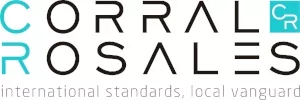Falsification And The Víctims
When we think who the falsification victims are, we automatically think on the legal manufactures, but when everything can be falsified the most important victim is, without a doubt, the final consumer.
What can be falsified? The world has demonstrated that EVERYTHING is the correct answer. From the easiest to falsify like clothes, shoes, purses, personal products such as makeup, and alcohol, to products that are life changing to the consumer such as: medicines, foods, airbags, batteries for pacemakers, etc.
The whole chain of people and business that participate in this illegalness, from the manufacturer to the final seller, know that their activity will only be successful if the product arrives in the hands of the final consumer: the victim of this sham.
It is necessary to remember that those who buy counterfeiting products knowingly are responsible for their own illegal action, such as if you buy a known brand purse in the street or a pair of brand shoes at the bay´s illegal stores.
The perfect victim for those who participate in counterfeiting is that who buys the fake product, at the original price. For example, a middleclass citizen that goes to a mall to buy a purse from a known brand, pays with a credit card in 12-month installments (because of the cost) without knowing it´s faux.
Another real case is that of a person, that with a huge effort, buys a smartphone (in 24 monthly installments) and for some reason needs a new battery or a new charger, goes to a store and finds a very affordable product, offered as "original", buys it with trust because it carries the brand, but because it is a counterfeit, they are in risk of not only losing money in a bad battery or charger but losing the phone as well, by getting irreparable damages because of the falsified artefacts.
But how can this long human chain pass in adverted through the authority controls and bring fake products into the country?
Of course, the counterfeits, also, affect the government treasury, because the declared value for the generic products for which the taxes are paid, does not correspond to the value of the authentic products, which is how they are being sold.
Also, it is known as a worldwide phenomenon that the fake products are mostly being smuggled into the countries and are sold in the informal market. They do not pay taxes in each country, which means a direct damage to the state and a big damage to the honest businessman that sells original products and pays taxes.
Finally, in the victim's chain, there is the Brand owners, that see how their investment (to which he has dedicated years and effort to position it in the market) it´s deluded by the illegal competition.
What does the Ecuadorian law say about counterfeit?
In the Organic Code of the Social Economy of Knowledge, Creativity and Innovation, better known as "Ingenious Code", the rights of the owners of the trademarks are detailed, and the facts that may constitute an infraction. But they do not have an express reference to the falsification nor to its consequent persecution and punishment. The only reference that is found about this illegal practice is in the chapter on border measures, which creates the mechanism to prevent customs entry of counterfeit merchandise. products.
In the Comprehensive Criminal Organic Code, several provisions regarding falsifications are included (described below), but the intellectual property was only added after its issuance, to comply with the provisions of the ADPIC'S (regulations of the World Trade Organization) and avoid possible sanctions against the country. This is a clear and lamentable sample of the prejudices of most legislators to fight counterfeit products, in order to protect the so-called informal merchants.
Article 217, sanctions the Production, manufacture, marketing and distribution of counterfeit drugs with imprisonment of three to five years.
Article 208-A sanctions the counterfeiting of trademarks and piracy against copyright with fines ranging from US $ 17.370 to US $ 113.870.
Article 235, which sanctions the deception of the buyer with respect to the identity or quality of the goods or services sold, establishes a prison sentence of six months to one year.
The close relationship between smuggling and counterfeiting of products is included in number 6 of Article 303, which establishes as an aggravating circumstance of the customs offense, the fact that the products subject to the crime are falsified, thus imposing the maximum penalty that could be up to 5 years.
With these rules as the basis of our claim, we have insisted for many years that the actions of the owners of the brands, aims to defend its intangible assets, avoiding the relationship with products of poor quality, and, simultaneously, defending the consumer, avoiding being tricked and buying counterfeit products that affect your economy, and even your health.
It is clear then that the first call to defend and act for the benefit of the community, preventing the consumer from being deceived and even putting his health and life in danger through the sale of counterfeit products, is the State, through its institutions, the Ecuadorian Institute of Intellectual Property, the General Prosecutor's Office, the National Police and the National Customs Service.
In short, ordering according to the importance of the affectation, the first and most affected is always the consumer, who is deceived and receives a product of lower quality than expected, and even a dangerous product.
Then the formal entrepreneur who pays taxes and sells original products, because their sales are undermined by the false belief that there are products like the ones he offers, but cheaper, in fact, fakes.
The State is another of those harmed because they have to allocate resources to health of consumers when affected by this illegalness, they also receive less taxes as a result of the decline in formal trade (of original products) and have a higher entry of contraband products to the country.
Finally, the owner of the brand, who is affected in their legitimate rights, because the products are sold under his prestigious name, most times of an inferior quality and even dangerous to the consumer.
We can see then that we are all victims of counterfeits, and like with any crime, we all have to support their punishment, and thus eliminate illegal products from the market. Only in this way will the consumer be protected, and the development of local brands will be possible, which, without this illegitimate competition, may arise and serve a segment of the market that is now in the hands of criminals.
The content of this article is intended to provide a general guide to the subject matter. Specialist advice should be sought about your specific circumstances.

